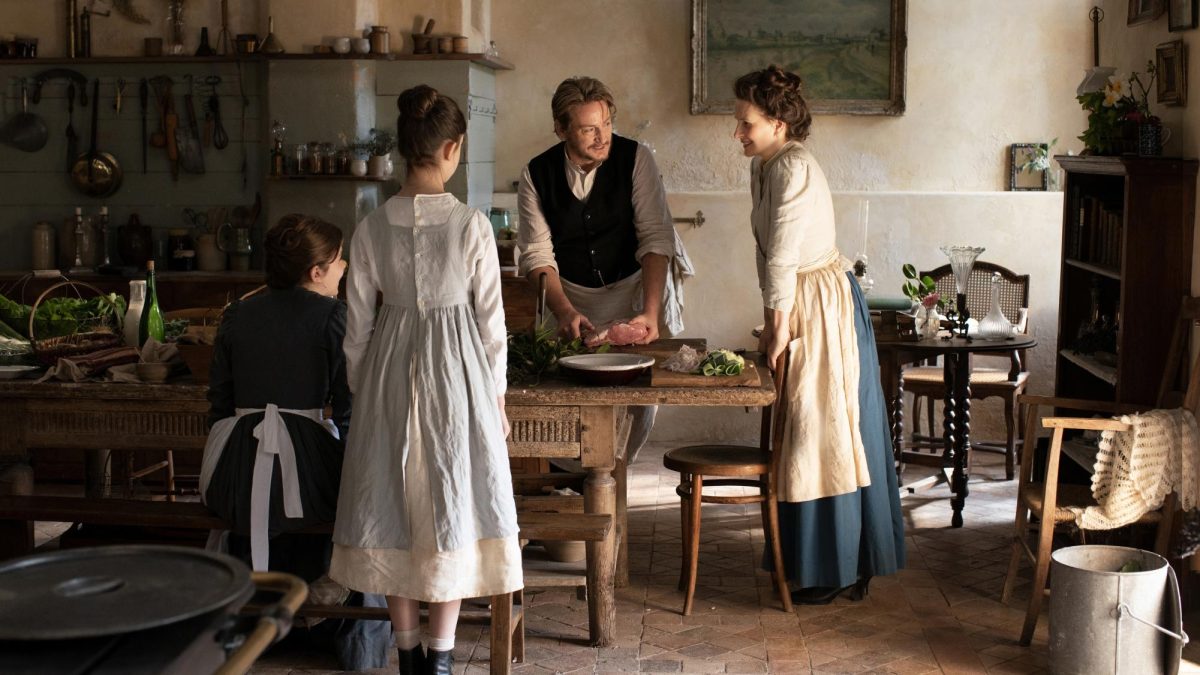The films of Trần Anh Hùng, with their striking cinematography, exquisite set design, and languorous pacing, are experiences more like listening to beautiful music than viewing the work of any other director. Hùng’s latest film, The Taste of Things, may be his most perfect yet. Unfolding with the elegant progression of a great classical sonata, it is simple and restrained, yet utterly spellbinding.
Hùng, who won the Best Director award at the Cannes Film Festival last year for the film, has a painterly gift for unifying space, color, and people into one distinctive vision. It is this feature of Hùng’s talent that makes The Taste of Things such an expressive, emotionally powerful experience. The film begins with a sublime 38-minute opening scene, composed of numerous floating tracking shots, which follow vegetables brought in handfuls from the garden, a sizzling hot pan on the stove, the gutting of a fish, and circling back around, the chopping of vegetables and the searing of a veal loin. In this languid opening scene, we are introduced to the characters: Chefs Eugénie (Juliette Binoche) and Dodin (Benoît Magimel), along with their assistants, Violette (Galatéa Bellugi) and her young gastronomic prodigy niece, Pauline (Bonnie Chagneau-Ravoire). Their characterization unfolds not with expository dialogue, but rather with the film’s precise images alone as the audience watches them prepare an elaborate meal together. It is a brilliant scene that conveys an incredible amount of information—without dialogue.
Miraculously, the film sustains this level of poetic beauty until its end. It tells the story of the quiet and tender partnership of Eugénie and Dodin, where everything is understood without being said. This relationship is what drives the film forward, as Hùng celebrates the joy of having deeply shared tastes and the gift of being able to cook something delicious side-by-side with a loved one and eat it together.
In the foreword of M.F.K. Fisher’s The Gastronomical Me, the great food journalist wrote, “When I write of hunger, I am really writing about love and the hunger for it, and warmth and the love of it and the hunger for it… and then the warmth and richness and fine reality of hunger satisfied… and it is all one.” There is no distinction between taste, hunger, and desire in this film, and there is none in life either. To eat and drink and laugh and love—they are indeed all one.
Trần Anh Hùng’s The Taste of Things, rated PG-13, is now playing in theaters.










